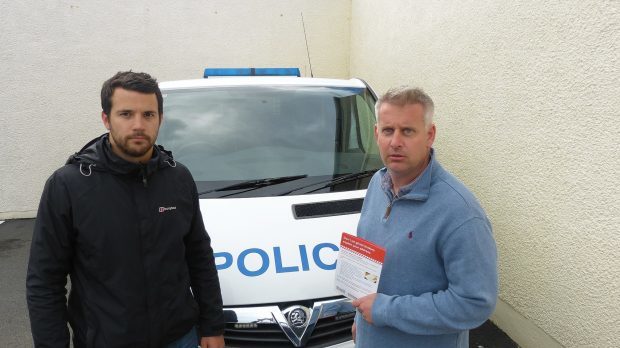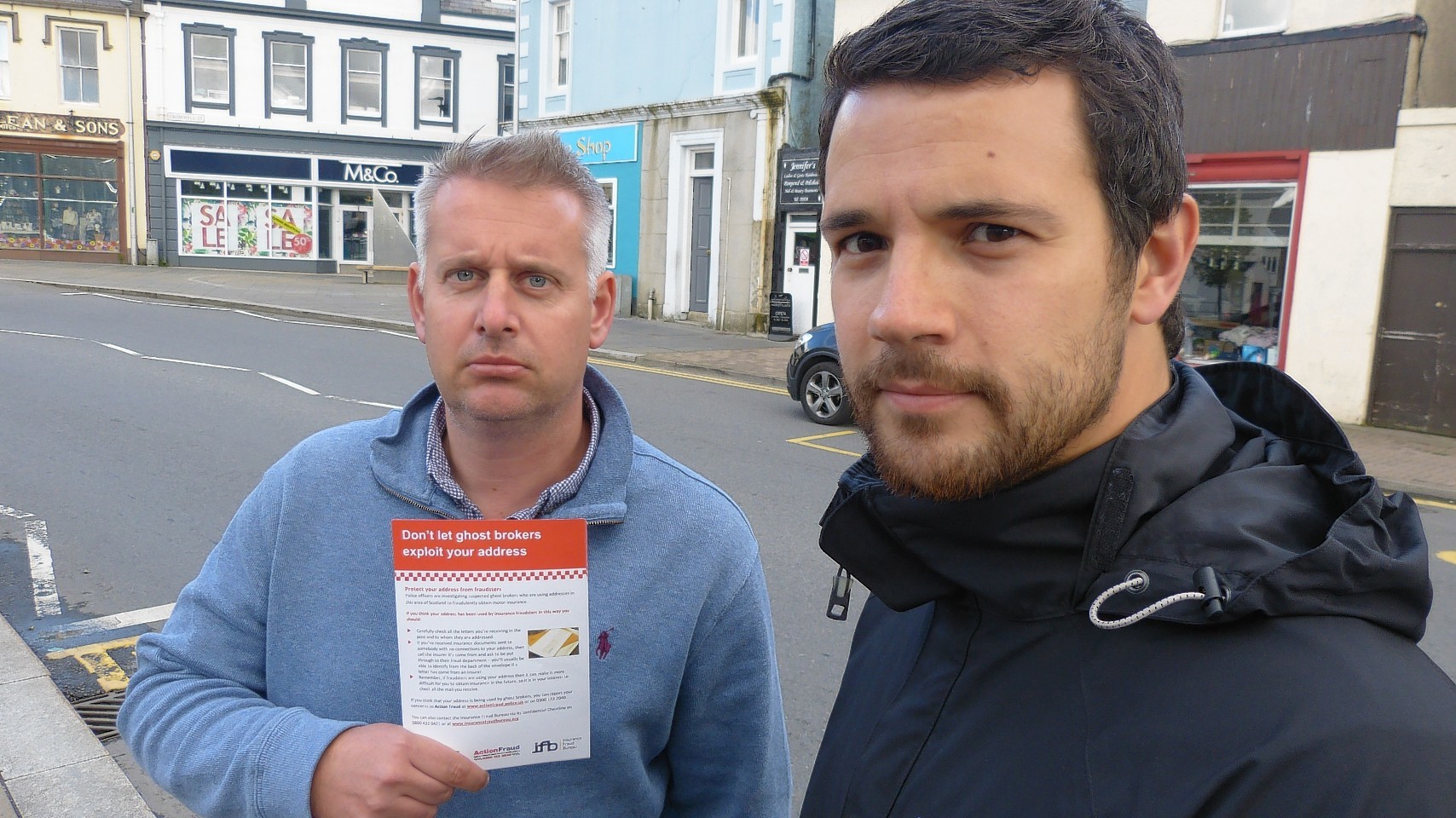Hundreds of addresses in the north and north-east have been used in car insurance scams worth hundreds of thousands of pounds.
In a new and fast-growing racket called “ghost brokering”, fraudsters set up cheap policies using details from low-crime, low-risk areas of Scotland and re-sell them to English inner city victims for a fee.
Specialist detectives from the City of London Police’s Insurance Fraud Enforcement Department (IFED) are in Scotland this week gathering evidence from dozens of adresses from Harris to Shetland to Aberdeen in relation to just one case.
They plan to return in the near future to investigate five further cases, and warned that north and north east residents must be vigilant in helping them stop this spiralling crime.
Six addresses have been used each in Lewis and Shetland, four in Aberdeen’s Union Street, two near Inverallochy near Fraserburgh, one in Beauly, one in Auchenhalrig near Fochabers and one in Portree. Another four cases were found in Lockerbie and the Borders.
Detectives told the Press and Journal last night that the inquiries relate to a case from Bradford in West Yorkshire, where a man was arrested in March.
IFED Detective Sergeant Matt Hussey, one of two officers gathering evidence this week, said: “It’s not just on this case, there are others where ‘low risk’ addresses in the north and north-east of Scotland are being used for fake insurance policies and fictitious accident claims. I am aware of about six cases ongoing and it would be fair to say the number of addresses is into the hundreds”.
Sergeant Hussey said that through the fraudulent use of all of these addresses, an estimated £250,000 has been scammed through ghost brokering, as well as through fake accident claims made by organised criminals using these cheaper premiums.
According to 2014 figures, the Association of British Insurers estimates that fraud adds, on average, an extra £50 to the annual insurance for every UK policyholder.
The scam involves fake insurance brokers using rural addresses to obtain cheap quotes, then sending them to people whose own addresses have been forged onto policy cover letters. Unwitting victims pay a broker fee for the seemingly cheaper quote and believe they have valid insurance in place.
And rural residents having their addresses used fraudulently may also find it more difficult to obtain car insurance in the future.
Sergeant Hussey stressed that a tell-tale sign of the scam is rural residents receiving letters from insurers addressed to people who don’t live there.
He added: “This is becoming an escalating problem and that’s one of the reasons why we are up here, to warn other residents in the area and advise them what to do if they receive such letters.
“In some cases people have had their cars taken because they had no insurance. There are also cases where people have received fines and penalty points. In this particular case most victims are around the Bolton and Bradford areas”.
IFED Detective Chief Inspector Oliver Little said: “We don’t want people to just ignore these letters and anyone receiving mail like this should call the insurer which is listed on the envelope and ask to be put through to their fraud department”.
Highlands and Islands Labour MSP Rhoda Grant said: “It seems to be that there is no end to the people thinking up these plans.
“People have to be really careful and really question their mail, and just be a little bit more cautious about what they see and whether anyone of that name has lived at the address.
“The trouble is that if something like this keeps going undetected, it would mean we won’t get cheaper insurance.”
Aberdeen Central MSP Kevin Stewart said: “I would urge people to be on their guard. Unfortunately, scams like this are becoming more and more the norm and I hope that if anyone out there spots any suspicious mail addressed to someone who does not live at their home, that they will report the matter to the police or to consumer protection”.
What should you do to avoid being scammed?
Residents are being advised by the Insurance Fraud Enforcement Department to do the following:
Carefully check all the letters received in the post and to whom they are addressed.
Upon receiving insurance documents sent to someone with no connections at their address, call the insurer they have come from and ask to be put through to their fraud department.
If suspecting that your home address is being used by ghost brokers, report your concerns to Action Fraud at www.actionfraud.police.uk or on 0300 123 2040
Contact the Insurance Fraud Bureau via its confidential Cheatline on 0800 422 0421 or at www.insurancefraudbureau.org

